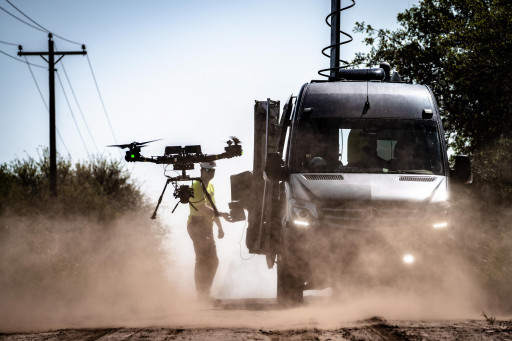LUBBOCK, Texas, Sept. 06, 2022 (GLOBE NEWSWIRE) -- Phoenix Air Unmanned, LLC (PAU) crossed the 13,000-mile mark of utility transmission line inspection flights for Xcel Energy last month. This is another milestone for a program designed to build upon traditional inspection methods in the utility industry and advance beyond visual line of sight (BVLOS) Uncrewed Aircraft Systems (UAS) operations in the National Airspace System. Flights began in 2019 and have been flown annually during spring and summer months.
The UAS inspection flights are conducted under the Xcel Energy certificate of waiver authorizing BVLOS flights without the requirement for visual observers along the route of flight. The waiver allows for use of technology as a means of airspace surveillance and authorizes an operational area spanning 18,000 miles of Xcel's transmission infrastructure.
Reaching the point of repeatable UAS inspection flights fell under an approach of proving technology and operational concepts. In 2018 Xcel was granted a site-specific waiver, limited to a 30-mile set of transmission line requiring the use of visual observers. The company worked with industry partners from L3Harris, Northern Plains UAS Test Site, Phoenix Air Unmanned, LLC and Capital Sciences to build a scalable BVLOS inspection program. Multiple test events were held along the 30-mile stretch, ultimately validating the concept of operations presented to the FAA for the 18,000-mile approval.
"In 2015 we piloted the initial UAS introductory flights for Xcel which led to scaling the program over thousands of circuit miles," said Will Lovett, Managing Director of Phoenix Air Unmanned. "What was once a few miles of inspections a day has grown to an average of 40 miles per day, with the highest being 124 miles by a single aircraft and crew."
The inspection flights capture high-resolution imagery of the transmission line infrastructure with two Phase One IXM-100 cameras, providing coverage of the transmission structure and utility right-of-way. PAU has captured over 3,000,000 100-megapixel photographs since the program began. Imagery is organized and delivered to eSmart Systems for analysis. The data analytics firm uses AI technology to assess images for system cataloging and fault detection.
Xcel Energy's Brian Long has remained focused on generating actionable intelligence from the inspection flights. "The imagery from the UAV is impressive. The flights are a balance of creating efficiency without sacrificing image quality," said Long. "The high-resolution datasets we're able to put into the eSmart inspection tool provide meaningful results to stakeholders within Xcel and we're able to inspect large portions of the system on an annual basis. Ultimately, we will have a repeatable inspection method capable of helping increase transmission system reliability."
"The work of the Xcel BVLOS program proves safe, effective UAS operations can be scaled to support the needs of the utility industry. This team continues to be on the leading edge of complex operations with the intention of advancing beyond the bounds of Part 107," said Lovett.
www.phoenixairunmanned.com 770-387-2000
Related Images

Image 1
Freefly Systems Alta X with dual Phase One cameras
This content was issued through the press release distribution service at Newswire.com.
Attachment
